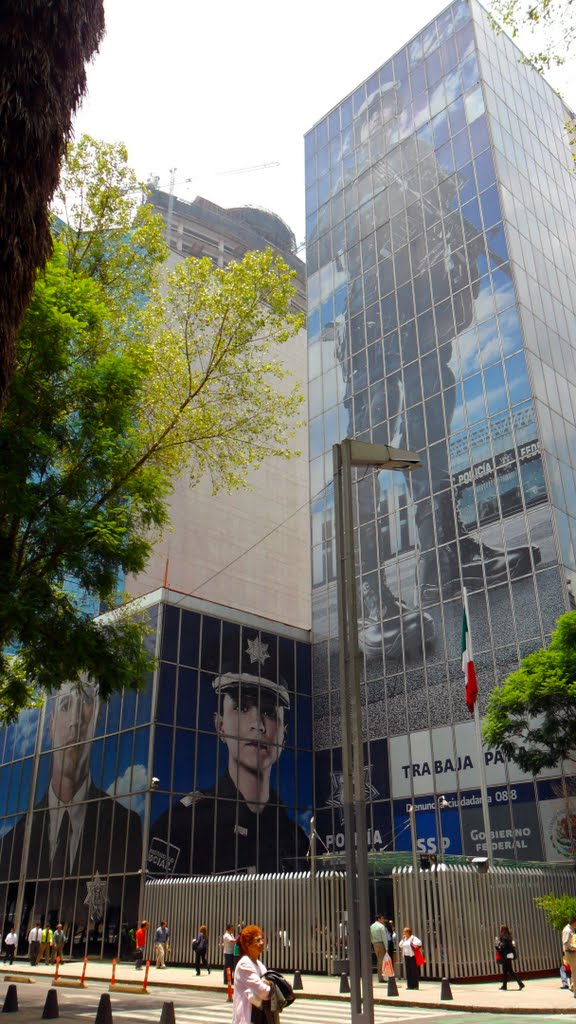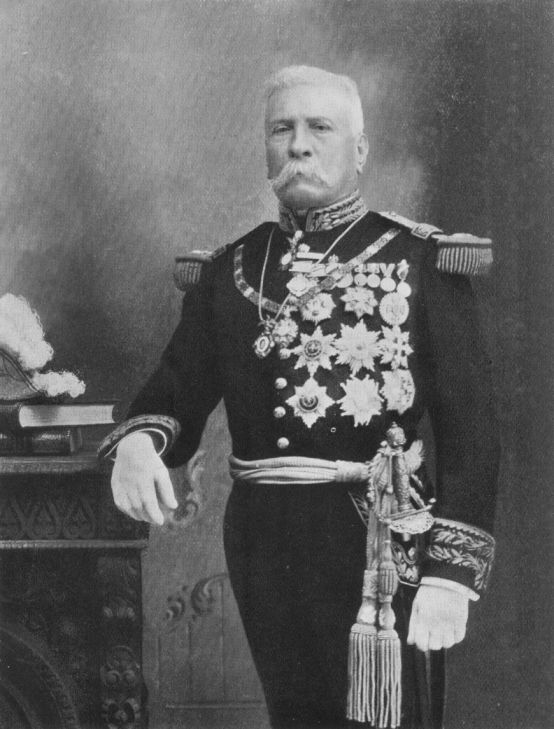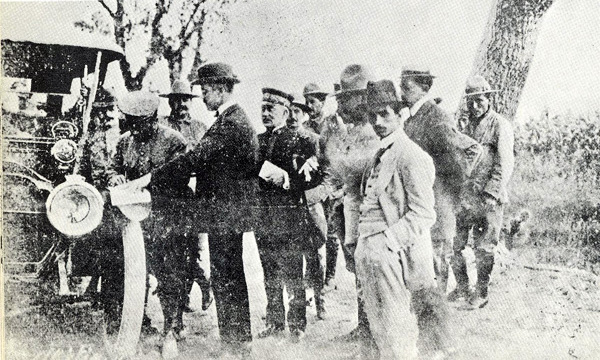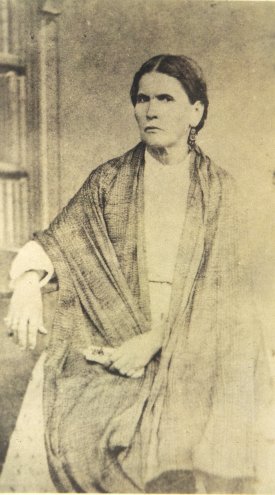|
Federales
''Federales'' (singular ''Federale'' or, rarely but aligning with Spanish, ''Federal'') is a Spanglish word used in an informal context to denote security forces operating under a federal political system. The term gained widespread usage by English speakers due to popularization in such films as ''The Wild Bunch'', '' The Treasure of the Sierra Madre'', and ''Blue Streak'', and the television drama series ''Breaking Bad'' and its spinoff prequel ''Better Call Saul''. The term is a cognate and counterpart to the slang " Feds" in the United States. Law enforcement The term is traditionally used for certain Mexican federal police agencies such as: The Mexican Federal Police, and any of its predecessors * Federal Preventive Police/Policía Federal Preventiva, * Federal Highway Police/Policía Federal de Caminos, and * Federal Fiscal Police/Policía Fiscal Federal. The Federal Ministerial Police/Policía Federal Ministerial (PFM) and any of its predecessors: * Federal Inv ... [...More Info...] [...Related Items...] OR: [Wikipedia] [Google] [Baidu] |
Federal Police (Mexico)
The Federal Police ( es, Policía Federal, PF), formerly known as the (Federal Preventive Police) and sometimes referred to in the U.S. as "Federales", was a Mexican national police force formed in 1999 and folded into the National Guard in 2019. It operated under the authority of the Department of Security and Civil Protection. The Federal Police was formed through the merger of four previously independent federal police agencies — the Federal Highway Police, the Fiscal Police, the Investigation and National Security Center, and the Mexican Army's 3rd Military Police Brigade — and was initially referred to as the Federal Preventive Police. Throughout its 20 year existence, the Federal Police was dogged by allegations of widespread corruption and abuse — allegations which President Andrés Manuel López Obrador said influenced his administration's decision to disband the force. Since its disbandment, two high-ranking commanders have been arrested for offences they committe ... [...More Info...] [...Related Items...] OR: [Wikipedia] [Google] [Baidu] |
Federal Army
The Mexican Federal Army ( es, Ejército Federal), also known as the Federales in popular culture, was the military of Mexico from 1876 to 1914 during the Porfiriato, the long rule of President Porfirio Díaz, and during the presidencies of Francisco I. Madero and Victoriano Huerta. Under President Díaz, a military hero against the French Intervention in Mexico, the Federal Army was composed of senior officers who had served in long ago conflicts. At the time of the outbreak of the Mexican Revolution most were old men and incapable of leading men on the battlefield. When the rebellions broke out against Díaz following fraudulent elections of 1910, the Federal Army was incapable of responding. Although revolutionary fighters helped bring Francisco I. Madero to power, Madero retained the Federal Army rather than the revolutionaries. Madero used the Federal Army to suppress rebellions against his government by Pascual Orozco and Emiliano Zapata. Madero placed General Victoriano Hue ... [...More Info...] [...Related Items...] OR: [Wikipedia] [Google] [Baidu] |
Spanglish
Spanglish (a portmanteau of the words "Spanish" and "English") is any language variety (such as a contact dialect, hybrid language, pidgin, or creole language) that results from conversationally combining Spanish and English. The term is mostly used in the United States and refers to a blend of the words and grammar of the two languages. More narrowly, Spanglish can specifically mean a variety of Spanish with heavy use of English loanwords. Since different Spanglish arises independently in different regions of varying degrees of bilingualism, it reflects the locally spoken varieties of English and Spanish. Different forms of Spanglish are not necessarily mutually intelligible. The term ''Spanglish'' is first recorded in 1933.Lambert, James. 2018. A multitude of ‘lishes’: The nomenclature of hybridity. ''English World-wide'', 39(1): 31. It corresponds to the Spanish terms Espanglish (from ''Español'' + ''English'', introduced by the Puerto Rican poet Salvador Tió in t ... [...More Info...] [...Related Items...] OR: [Wikipedia] [Google] [Baidu] |
Federal Judicial Police
The Federal Judicial Police ( es, Policía Judicial Federal, the PJF) was the federal police force of Mexico until it was shut down in 2002 due to its own rampant corruption and criminal activity. The jurisdiction of the Federal Judicial Police encompassed the entire nation and was divided into thirteen zones with fifty-two smaller detachment headquarters. Under the coordination of the local federal prosecutor, each zone was headed by a Second Commandant of the Federal Judicial Police, who in turn directs the group chiefs in the outlying detachments. Individuals arrested by the Federal Judicial Police were placed at the disposition of the local federal prosecutor, who appointed subordinate attorneys to assess each case. One of the smaller law enforcement agencies in Mexico, the Federal Judicial Police tripled in size by increasing from 500 personnel in 1982, to over 1,500 in 1984. In 1988 an assistant attorney general's office for investigating and combating drug trafficking was fo ... [...More Info...] [...Related Items...] OR: [Wikipedia] [Google] [Baidu] |
Federal Law Enforcement Agencies Of Mexico
Federal or foederal (archaic) may refer to: Politics General *Federal monarchy, a federation of monarchies *Federation, or ''Federal state'' (federal system), a type of government characterized by both a central (federal) government and states or regional governments that are partially self-governing; a union of states *Federal republic, a federation which is a republic *Federalism, a political philosophy *Federalist, a political belief or member of a political grouping * Federalization, implementation of federalism Particular governments *Federal government of the United States **United States federal law **United States federal courts *Government of Argentina *Government of Australia *Government of Pakistan *Federal government of Brazil *Government of Canada *Government of India *Federal government of Mexico * Federal government of Nigeria *Government of Russia *Government of South Africa * Government of Philippines Other *''The Federalist Papers'', critical early arguments in ... [...More Info...] [...Related Items...] OR: [Wikipedia] [Google] [Baidu] |
Policia Federal (other)
{{disambiguation ...
Policia Federal may refer to: Argentina * Argentine Federal Police Brazil * Federal Police (Brazil) * Brazilian Federal Highway Police * Brazilian Federal Railroad Police Mexico * Federal Police (Mexico) * Federal Judicial Police, until 2002 See also * Federales, slang for Mexican Federal Police * Federal Police A law enforcement agency (LEA) is any government agency responsible for the enforcement of the laws. Jurisdiction LEAs which have their ability to apply their powers restricted in some way are said to operate within a jurisdiction. LEAs ... [...More Info...] [...Related Items...] OR: [Wikipedia] [Google] [Baidu] |
Teoloyucan Treaties
The Teoloyucan Treaties were signed on August 13, 1914, at Teoloyucan, State of Mexico, Mexico between the revolutionary army and forces loyal to Victoriano Huerta. The Constitutionalist Army of First Chief Venustiano Carranza was represented by Álvaro Obregón and Lucio Blanco. The Federal Army was represented by General Gustavo A. Salas and Admiral Othón P. Blanco, while Mexico City was represented by Eduardo Iturbe. The treaties established the surrender of the Federal Army and its dissolution. Background In the middle of July 1914, the Huerta government realized that a revolutionary victory was imminent. On July 15 Huerta resigned the presidency and went into exile. The new government tried to negotiate with the revolutionaries. These negotiations broke down when the revolutionaries demanded the surrender of the capital as well as the dissolution of the federal army. In August, due to the victories of Venustiano Carranza, interim president Francisco S. Carbajal finally ... [...More Info...] [...Related Items...] OR: [Wikipedia] [Google] [Baidu] |
Victoriano Huerta
José Victoriano Huerta Márquez (; 22 December 1854 – 13 January 1916) was a general in the Mexican Federal Army and 39th President of Mexico, who came to power by coup against the democratically elected government of Francisco I. Madero with the aid of other Mexican generals and the U.S. Ambassador to Mexico. His violent seizure of power set off a new wave of armed conflict in the Mexican Revolution. After a military career under President Porfirio Díaz and Interim President Francisco León de la Barra, Huerta became a high-ranking officer during the presidency of Madero during the first phase of the Mexican Revolution (1911–13). In February 1913 Huerta joined a conspiracy against Madero, who entrusted him to control a revolt in Mexico City. The Ten Tragic Days – actually fifteen days – saw the forced resignation of Madero and his vice president and their murders. The coup was backed by the nascent German Empire as well as the United States under the Taft administ ... [...More Info...] [...Related Items...] OR: [Wikipedia] [Google] [Baidu] |
Francisco Madero
Francisco Ignacio Madero González (; 30 October 1873 – 22 February 1913) was a Mexican businessman, revolutionary, writer and statesman, who became the 37th president of Mexico from 1911 until he was deposed in a coup d'etat in February 1913, and assassinated. A member of one of Mexico's wealthiest families, Madero studied business at the École des Hautes Études Commerciales de Paris. An advocate for social justice and democracy, his 1908 book ''The Presidential Succession in 1910'' called Mexican voters to prevent the reelection of Porfirio Díaz, whose regime had become increasingly authoritarian. Bankrolling the opposition Anti-Reelectionist Party, Madero's candidacy garnered widespread support in the country. He challenged Díaz in the 1910 election, which resulted in his arrest. After Díaz declared himself winner for an eighth term in a rigged election, Madero escaped from jail, fled to the United States, and called for the overthrow of his regime in the Pl ... [...More Info...] [...Related Items...] OR: [Wikipedia] [Google] [Baidu] |
Rurales
In Mexico, the term ''Rurales'' ( Spanish) is used in respect of two armed government forces. The historic Guardia Rural ('Rural Guard') was a rural mounted police force, founded by President Benito Juárez in 1861 and expanded by President Porfirio Díaz (r. 1876–1911). It served as an effective force of repression and a counterweight to the Mexican Army during the nineteenth and early twentieth centuries. The ''rurales'' were dissolved during the Mexican Revolution. The modern Cuerpo de Defensa Rural ('Rural Defense Corps') is a part-time voluntary militia, generally used to support Federal forces. Rural Guard 1861–1914 The ''Guardia Rural'' was established as a federal constabulary by the Liberal regime of Benito Juárez in 1861. This mounted rural police force became best known during the long rule of President Porfirio Díaz (1876–1911). Origins As originally constituted under Juárez the ''Rurales'' lacked the numbers and organization to effectively cont ... [...More Info...] [...Related Items...] OR: [Wikipedia] [Google] [Baidu] |
Porfirio Díaz
José de la Cruz Porfirio Díaz Mori ( or ; ; 15 September 1830 – 2 July 1915), known as Porfirio Díaz, was a Mexican general and politician who served seven terms as President of Mexico, a total of 31 years, from 28 November 1876 to 6 December 1876, 17 February 1877 to 1 December 1880 and from 1 December 1884 to 25 May 1911. The entire period from 1876 to 1911 is often referred to as Porfiriato and has been characterized as a ''de facto'' dictatorship. A veteran of the War of the Reform (1858–1860) and the French intervention in Mexico (1862–1867), Díaz rose to the rank of general, leading republican troops against the French-backed rule of Maximilian I. He subsequently revolted against presidents Benito Juárez and Sebastián Lerdo de Tejada on the principle of no re-election. Díaz succeeded in seizing power, ousting Lerdo in a coup in 1876, with the help of his political supporters, and was elected in 1877. In 1880, he stepped down and his political ally Manu ... [...More Info...] [...Related Items...] OR: [Wikipedia] [Google] [Baidu] |
Mexican Army
The Mexican Army ( es, Ejército Mexicano) is the combined land and air branch and is the largest part of the Mexican Armed Forces; it is also known as the National Defense Army. The Army is under the authority of the Secretariat of National Defense or SEDENA and is headed by the Secretary of National Defence. It was the first army to adopt (1908) and use (1910) a self-loading rifle, the Mondragón rifle. The Mexican Army has an active duty force of 198,000 with 76,000 men and women of military service age. History Antecedents Pre-Columbian era: native warriors In the prehispanic era, there were many indigenous tribes and highly developed city-states in what is now known as central Mexico. The most advanced and powerful kingdoms were those of Tenochtitlan, Texcoco and Tlacopan, which comprised populations of the same ethnic origin and were politically linked by an alliance known as the Triple Alliance; colloquially these three states are known as the Aztec. They h ... [...More Info...] [...Related Items...] OR: [Wikipedia] [Google] [Baidu] |
_cars_at_parade.jpg)





.jpg)

